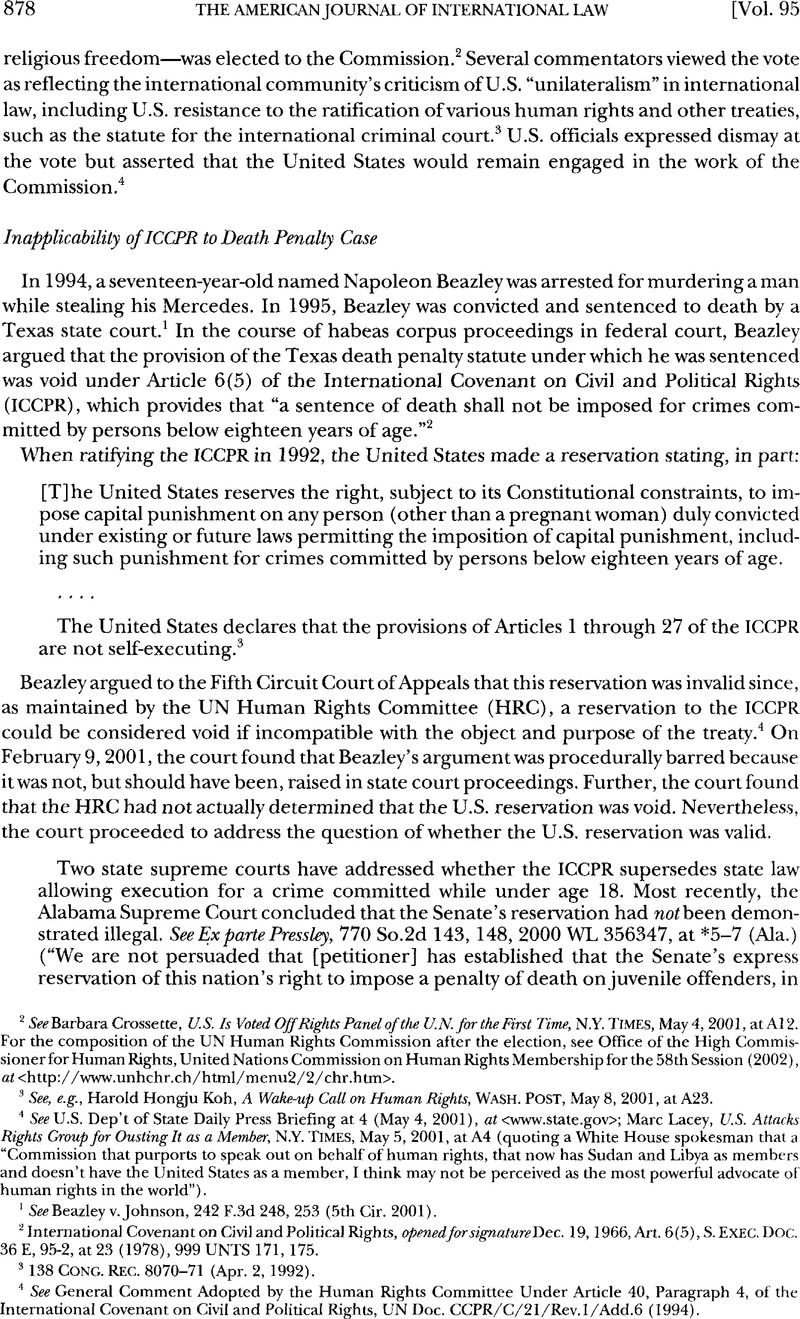No CrossRef data available.
Published online by Cambridge University Press: 10 March 2017

1 See Beazley v. Johnson, 242 F.3d 248, 253 (5th Cir. 2001).
2 International Covenant on Civil and Political Rights, opened for signature Dec. 19, 1966, Art. 6(5), S. Exec. Doc. 36 E, 95–2, at 23 (1978), 999 UNTS 171, 175.
3 138 Cong. Rec. 8070–71 (Apr. 2, 1992).
4 See General Comment Adopted by the Human Rights Committee Under Article 40, Paragraph 4, of the International Covenant on Civil and Political Rights, UN Doc. CCPR/C/21/Rev.1/Add.6 (1994).
5 242 F.3d at 266–68 (footnotes omitted). Although the U.S. court of appeals dismissed the petition, the Texas Court of Criminal Appeals on August 15, 2001, stayed Beazley’s execution in order to consider arguments as to whether Beazley’s initial appellate lawyer in the state court proceedings was incompetent and had failed to raise certain important issues, such as Beazley’s age (he was seventeen at the time of the crime) and potential racial bias among the jurors. See Jim, Yardley, Texas Execution Is Halted by State Court of Appeals, NY. Times, Aug. 16, 2001, at A10 Google Scholar.